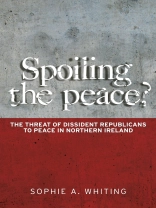This book assesses the security threat and political challenges offered by dissident Irish republicanism to the Northern Irish peace process. Dissident republicanism ranges from those who consider armed struggle to be an essential element of any republican campaign to political reformers and campaign groups. The book charts the divisions in republicanism following the evolution of Sinn Féin into constitutional politics, leaving a rump of ‘militants’.
Using in-depth interviews and access to a range of organisations it has been possible to explore the origins, strategy and goals of the various strands of republicanism evident in Northern Ireland today. This book considers the impact of various dissident groupings and their tactics within a post-Good Friday Agreement context and places armed republicanism in Northern Ireland within the broader debate on counter-terrorism after 9/11.
Tabella dei contenuti
Introduction
1. Evaluating historic splits in Irish republicanism; is there space for the emergence of ‘dissidents’?
2. Irish republicanism as an ideology: are there agreed components?
3. Creating political space for ‘dissidents’? The extent of ideological compromise by Sinn Féin and ‘Provisional’ republicanism
4. Continuity or dissidence? The origins of dissident republicans and their mandate
5. Continuity or dissidence? Dissident republican strategies and campaigns
6. Militarism as a component of dissident republicanism
7. Spoiling the peace?
8. Conclusion
Index
Circa l’autore
Sophie A. Whiting is a Lecturer in Politics at the University of Bath












